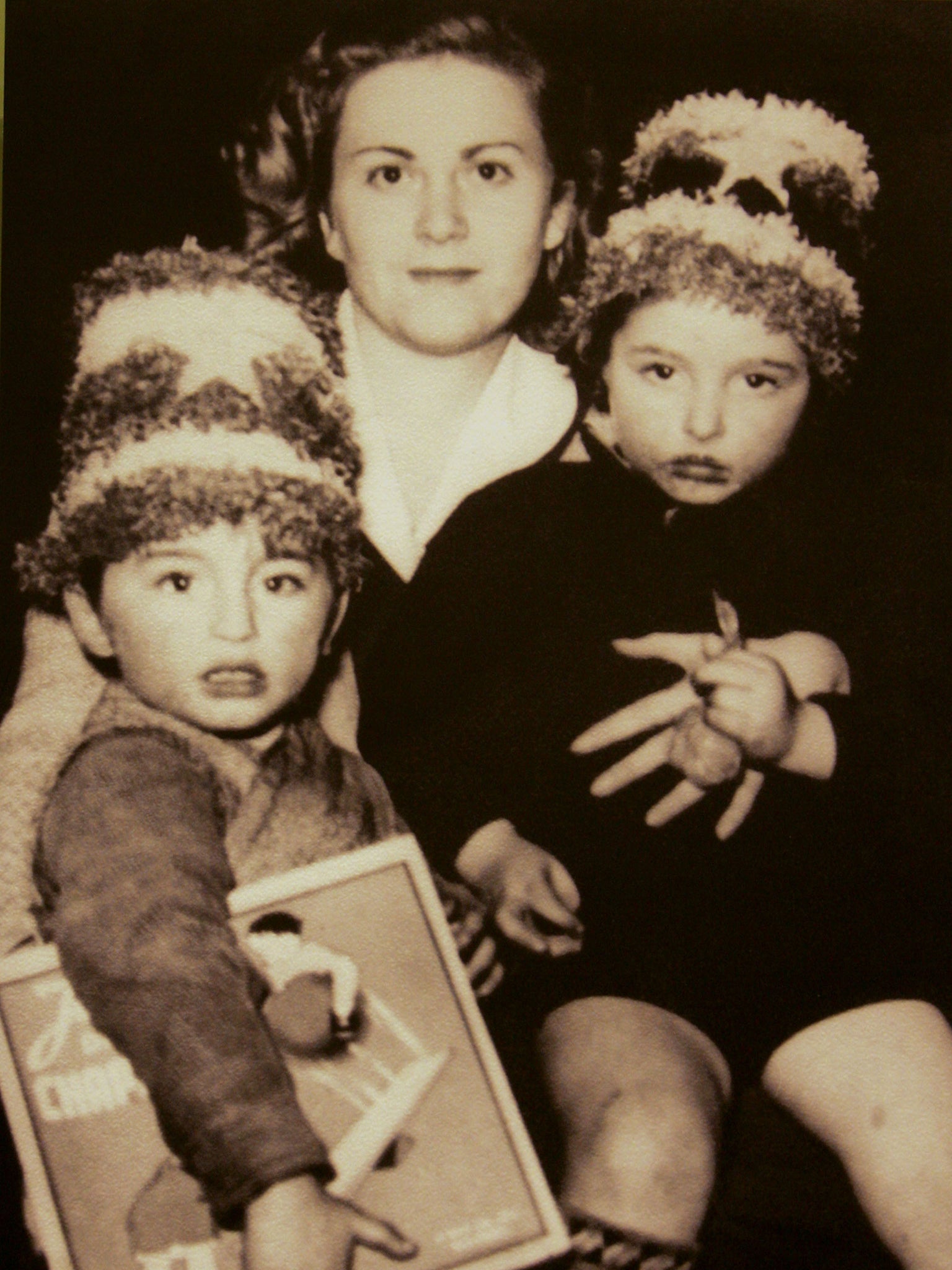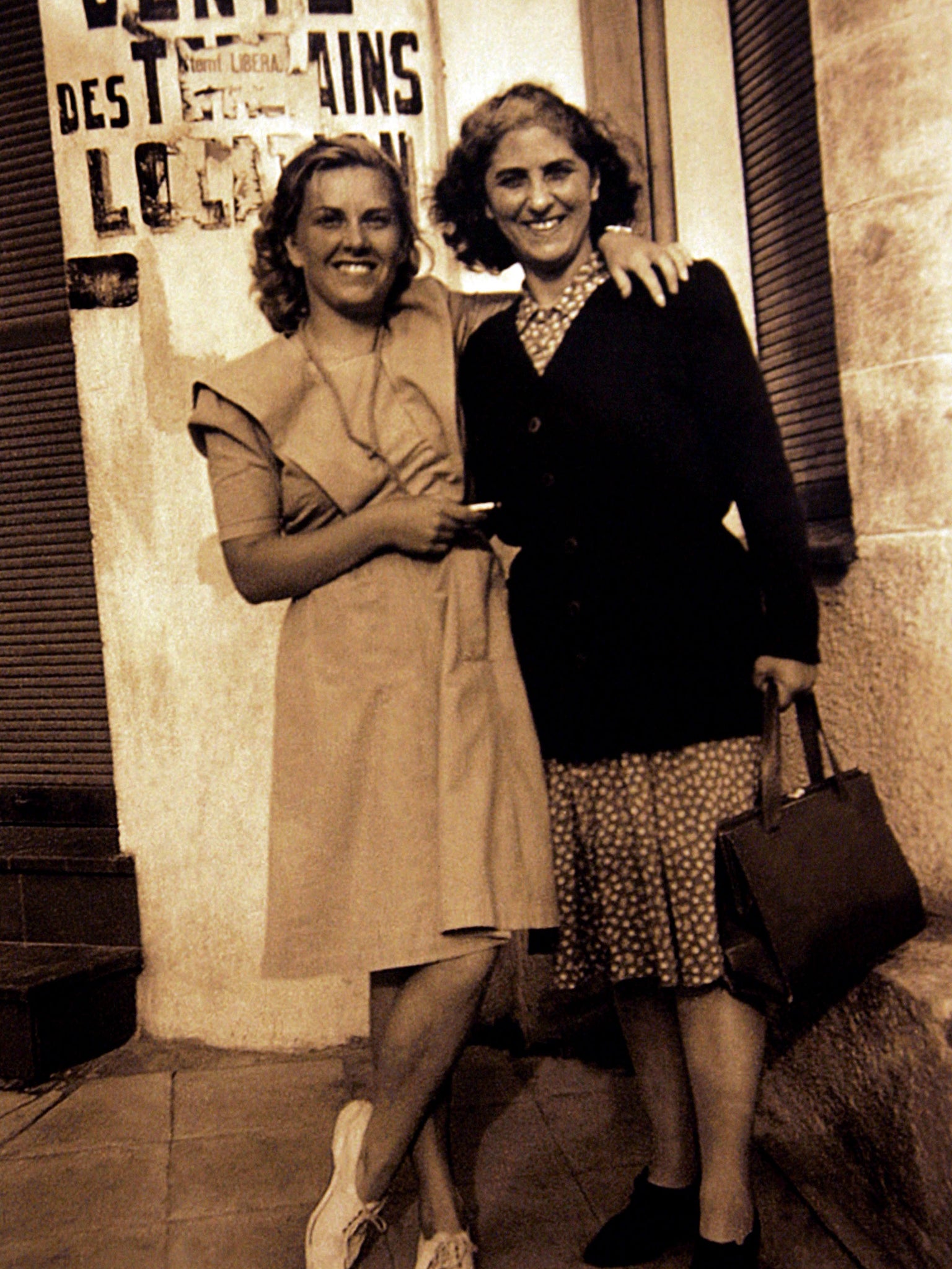
Andrée Geulen, a Belgian schoolteacher who saved the lives of hundreds of Jewish children during the Holocaust, holding their hands and comforting them with stories as she spirited them to hiding places where they stayed until liberation, has died aged 100.
Geulen was 18 years old, a Catholic-born teacher just embarking on her career, when Hitler conquered Belgium in May 1940. Despite the wartime deprivations, her life carried on more or less as usual, she said, until she began to witness the cruelties visited upon her Jewish students.
One day, she recalled years later in an interview with an American scholar, Anne Griffin, several Jewish students arrived at school with their notebooks held tightly against their chests. They were trying to hide the yellow stars sewn onto their uniforms in accordance with a Nazi decree. To lessen their shame and fear, Geulen declared that all her students, Jewish or not, would wear aprons over their uniforms. If only in the confines of her classroom, a yellow star – its presence or absence – was no matter.
Shortly thereafter, Geulen’s Jewish students began to disappear. They had been rounded up, bound for deportation to Auschwitz, the Nazi death camp in Poland. “At that very moment,” she told Griffin, “I said to myself, ‘What can I do to help? What can I do?’”
Geulen joined the underground Resistance, and for two years in her early twenties, from 1942 until the Allied liberation of Belgium in September 1944, devoted herself to the rescue of Jewish children. Nearly half a century later, in 1989, she was recognised by Yad Vashem, the Holocaust memorial in Jerusalem, as one of the Righteous Among the Nations, an honour bestowed on gentiles who assumed extraordinary risk to save the lives of Jews during the Second World War.
Working with an organisation called the Comité de Défense des Juifs, Geulen – under the code name Claude Fournier – escorted Jewish children to farms, convents, boarding schools and the homes of host families, where she and her colleagues in the Resistance had arranged for them to live under assumed Christian identities.
“Why can’t I say my name is Sarah?” she recalled one child enquiring. “It’s a beautiful name!”
“It’s a very beautiful name,” Geulen told the girl, but at least for a while, “you have to say your name is Suzanne Peters”.
In what Geulen described as an “indispensable security measure”, in no circumstances did she reveal to parents where she was taking their children, lest the parents be tempted to visit and risk the entire mission. “I am trusting you with the most precious thing I have,” she recalled one mother impressing upon her.

In a complex series of ledgers, Geulen and her colleagues recorded the true names of the children in their care, their assumed names and their locations, but in such a manner that no single notebook – should it fall into the wrong hands – would reveal their whereabouts.
“Everything was urgent,” she told Griffin, who organised a travelling exhibit about the Resistance in Belgium, which was presented most recently at Queens College in New York in 2017. “There were round-ups every night. I had some addresses, and I saw it as a race between myself and the Gestapo: who would get to the family first.”
Sometimes, she said, she and her fellow underground workers would rescue a child, only to learn that the parents had been taken away later that night. Geulen often posed as a mother, holding the hand of one child who was not her own and pushing another in a buggy, striding forward together under the gaze of German soldiers.
Of the 300 to 400 lives Geulen was credited with saving, some of them had scarcely begun. The youngest of the children she rescued were newborns, five or six days old, lifted from the arms of their mothers in hospital maternity wards and taken to places where they would be safe, or at least safer, until the Nazi danger had passed. Her underground group worked with a doctor who would inform them when a Jewish woman had given birth and wished to surrender the child for safekeeping.
“Taking children that way, from a mother who has just given birth, is terrible,” she told Griffin. “Getting onto a train with Jewish children, knowing that the Germans could also get on, that didn’t frighten me. But to tear a child away from his mother, and not tell her where we were taking him, and to have her cry and cry, ‘Tell me, at least, only tell me where you’re going to take him!’...
“If I’d had children then,” she added, “I don’t know if I could have done it.”
Some of those babies, like the other children rescued by Geulen, would be reunited with their families after the war. But many of their parents were murdered in the concentration camps. Meeting decades later with one of the children she had helped, Geulen spoke to the man about his mother and her anguish on leaving him before her ultimate death: “She let you go and saved your life.”

Andrée Céline Geulen was born in Brussels on 16 September 1921. Her parents provided for her through income generated by family property holdings. After they lost some of those properties in the war, her mother ran an antique book store.
Geulen closely escaped being arrested for her Resistance work on at least one occasion, once when she was working at a boarding school that had taken in 12 Jewish children. Apparently tipped off about their presence, the Germans raided the school in 1943 on the Christian feast of Pentecost, when gentile students were likely to be at home with their families. Wasn’t she ashamed, a German interrogator demanded of Geulen, to be teaching Jewish children?
“Aren’t you ashamed,” she replied, “to make war on Jewish children?”
The students were arrested, according to Yad Vashem, as were the headmistress and her husband, who perished in concentration camps. They were posthumously honoured as Righteous Among the Nations.
After the war, Geulen assisted in the repatriation of Jewish refugees through an agency of what became the United Nations. That work brought her into contact with further suffering, such as when a child had no surviving parents or relatives, or when a surviving parent lacked the material, physical or emotional strength to resume a normal life.
Geulen was a correspondent for Les Lettres Françaises, a French leftist literary publication, her grandson said, and later pursued a career as a social worker.
She was married in 1948 to Charles Herscovici, a Belgian lawyer whose parents, both Jews of Romanian descent, had been murdered in Nazi concentration camps. He died in 2005.
Besides her grandson, survivors include two daughters, four other grandchildren, and seven great-grandchildren.
Geulen is also survived by an ever-diminishing number of the children she saved.
One of them is Henri Wolfe, 84, a retired TV and film producer who lives in New York. He was a boy of just a few years old, and had already been separated from his parents, when Geulen smuggled him out of the Mechelen transit camp, located in Belgium between Antwerp and Brussels, where he was awaiting deportation to Auschwitz. Wolfe, who lost both his parents in the Holocaust and was adopted at the age of nine by an American couple, said in an interview that he had never learned precisely how Geulen had gotten him out.
Another of the children is Herbert Barasch, 85. His parents entrusted him during the war to Geulen, who, he recalled, held his hand as he boarded a train for the city of Leuven, where she placed him in a convent under the name Henri Le Chat. His parents also survived in hiding, and together they migrated after the war to the United States.
“If it wasn't for Andrée, I would not be here today, and if I wouldn’t be here today, I wouldn’t have a family,” Barasch said in an interview. “I have two sons and six grandchildren ... I am alive because of her.”
Yet Geulen insisted that it was she who owed thanks to the children.
“I was then a young woman; not better, nor worse than others,” she said at a reunion of hidden children in 1998. “Life had kept me isolated from the major upheavals around me; I did not know unhappiness. Then, suddenly, I found myself, a young teacher, confronted with this tragedy that befell you. I could not accept it ... For a long time now I wanted to say to you ‘thank you’ for having taught me the immeasurable stupidity of racism. This will remain with me for all of my life.”
Andrée Geulen, teacher and resistance fighter, born 6 September 1921, died 31 May 2022
© The Washington Post







